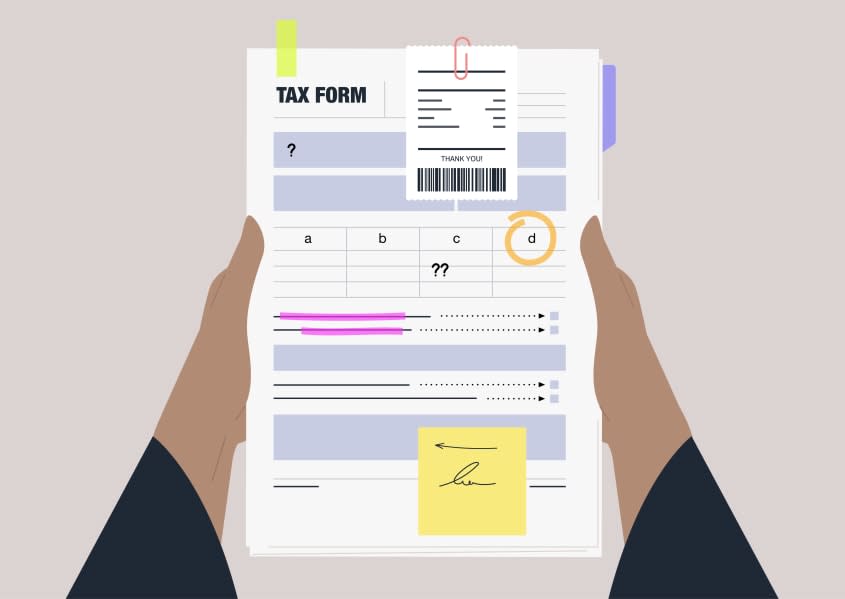7 tax breaks that could save you money


Ready or not, tax season is here.
While it might feel tempting to put off preparations until April, getting a jump on your taxes can help ensure you file a mistake-free return on time. Plus, you will have ample time to take advantage of any money-saving tax breaks you might be eligible for.
Let's brush up on important dates for this year's tax season:
Jan. 23, 2023: Tax season officially begins, with the IRS starting to accept and process tax returns on this date.
Jan. 31, 2023: This is the deadline for employers to send out W-2 forms, so keep an eye on your mailbox (or your inbox) if you're expecting one. This is also when certain 1099 forms are sent.
Feb. 15, 2023: For taxpayers who opted to claim an exemption from their employer withholding taxes last year, which is done through filing a Form W-4, this is the deadline to refile. Per Turbotax, "You would file this exemption request if you anticipate having no tax liability this year and had none in the previous year."
April 18, 2023: Tax day! Either make sure you've turned in your tax return by this date, or file a Form 4868 asking for an extension.
Here are seven tax breaks that could save you money when you file this year.
Out-of-pocket charitable deductions
While you might already account for the large charitable donations you make during the year, you may overlook the smaller ones — and those can add up. It doesn't even necessarily have to be a direct donation, as Kiplinger notes "you can write off out-of-pocket costs that you incur while you are doing work for a charity," like ingredients for a meal or stamps for mailing.
Note that if your contribution totals $250 or more, you'll need to get an acknowledgment from the charity that you provided support.
Gambling losses
A gambling loss doesn't have to be a total wash, thanks to this tax break. Your deduction is limited to the amount of winnings that you report as taxable income — or, as Nerdwallet puts it, "[y]ou can't deduct more than the amount you win."
You'll also need to itemize deductions to get this tax break for gambling losses, so make sure you hang onto your receipts. You might also consider keeping a detailed log of your gambling activity to reference if needed.
Child and dependent care credit
As any parent knows, child care isn't cheap.This tax credit, the child and dependent care credit, can help you cover the cost of care for your children or other dependents, such as an elderly parent. For 2022, you could receive a non-refundable tax credit of up to 35 percent, or $3,000, of qualifying expenses for one child under the age of 13 (it's up to $6,000 for two or more qualifying children).
There are requirements you'll have to meet to qualify, including both modified adjusted gross income for the year and the child or dependent living arrangements. According to U.S. News & World Report, what's key to note is that this credit is "available to those who pay for child care so they can work," meaning you'll need earned income to qualify.
Social Security taxes you pay when you're self-employed
Self-employed individuals who cover the entire 15.3 percent Social Security and Medicare tax out of their pocket "instead of splitting it 50-50 with an employer," explains Kiplinger, are able to write off half of the amount they pay. Even better? You don't have to itemize your deductions to snag this tax break.
Refinancing points
If you refinanced your mortgage in 2022, you may be able to deduct the points on the new loan. However, this works a bit differently than it did when you took out your mortgage initially.
With a refinance, you can deduct points over the life of the loan — so, as an example, you could deduct 1/30th of the points every year for a 30-year mortgage, which would total $33 per year for every $1,000 you paid in points. When you pay off the loan, you'll be able to deduct all the points you hadn't yet deducted.
Lifetime learning credit
You can take advantage of the lifetime learning credit to offset higher education costs for your children, your spouse, or even yourself. This could include the cost of classes at a community college or vocational school, and according to U.S. News & World Report, "[t]here is no cap on how many years someone can receive a lifetime learning credit." The credit is for up to $2,000 annually, though the right to claim it phases out at certain income levels.
Student loan interest paid by a parent
Even if your parent is the one repaying your student loan debt, you may be able to claim a deduction. That's because the IRS looks at those parental payments "as if the money were given to the child, who then paid the debt," Kiplinger explains. Assuming the child is no longer claimed as a dependent, they can deduct up to $2,500 in student loan interest a year that their parents paid.
Becca Stanek has worked as an editor and writer in the personal finance space since 2017. She has previously served as the managing editor for investing and savings content at LendingTree, an editor at SmartAsset and a staff writer for The Week. This article is in part based on information first published on The Week's sister site, Kiplinger.com
New Tax Rules for 2023: Download your free issue of The Kiplinger Tax Letter today. No information is required from you.
You may also like
Andrea Riseborough's shock Oscar nomination has reportedly sparked Academy scrutiny

 money
money 